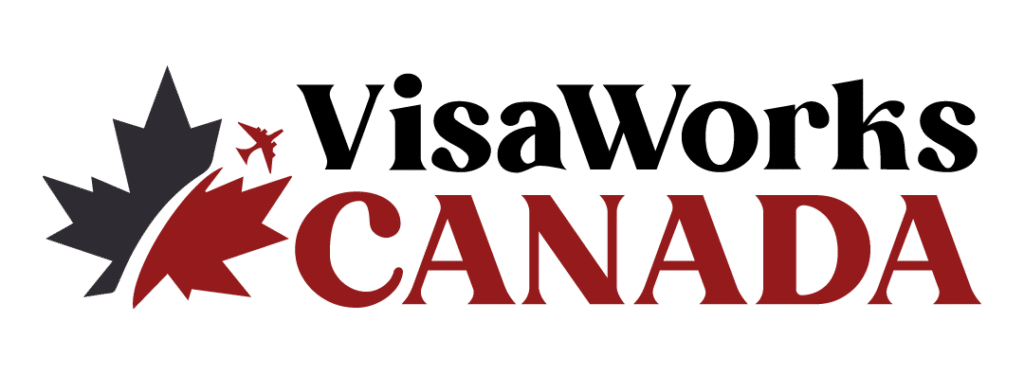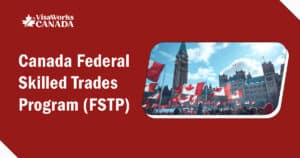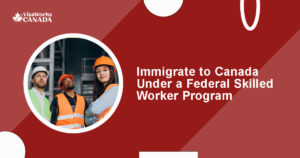Studying in Canada opens doors to world-class education and diverse cultural experiences. A crucial step in this journey is obtaining a Canada Study Permit, which allows international students to study at designated learning institutions (DLIs) across the country. This guide will walk you through everything you need to know about the Canada Study Permit, ensuring you are well-prepared for your educational adventure.
Securing a study permit is essential for international students. This document not only allows you to study in Canada but also offers opportunities for part-time work, post-graduation employment, and potential pathways to permanent residency. Understanding the process and requirements will help you avoid common pitfalls and increase your chances of success.
Understanding the Canada Study Permit
A Canada Study Permit is an official document issued by the Canadian government. It permits foreign nationals to study at DLIs within Canada. Unlike a visa, a study permit is specifically for educational purposes and includes conditions that must be adhered to during your stay.
The distinction between a study permit and a visa is important. While a visa allows you to enter Canada, a study permit authorizes you to stay and pursue your studies. Most international students need both to fully comply with Canadian immigration regulations.
Eligibility Requirements
To qualify for a Canada Study Permit, applicants must meet several eligibility criteria. First and foremost, you must have been accepted by a DLI. Your acceptance letter is a key document in your application process.
Academic requirements include proof of enrollment in a full-time program, previous educational qualifications, and language proficiency. Financial requirements are equally important, as you must demonstrate that you can support yourself and any family members accompanying you during your stay. This includes tuition fees, living expenses, and return transportation costs.
Application Process
Applying for a Canada Study Permit involves several steps. First, gather all required documents, including your acceptance letter, proof of financial support, and a valid passport. The application can be submitted online or via paper, depending on your preference and location.
The required documents checklist includes your acceptance letter from a DLI, proof of financial support, passport-sized photos, and any additional documents specified by the visa office. Understanding the differences between online and paper applications can help streamline the process and avoid delays.
Choosing a Designated Learning Institution (DLI)
A Designated Learning Institution (DLI) is a school approved by a provincial or territorial government to host international students. Choosing a DLI is crucial as only students enrolled in these institutions are eligible for a study permit.
Finding a DLI can be done through the Canadian government’s official list of approved schools. Ensure that the institution you choose is recognized and has the necessary approval to admit international students. Acceptance letters from DLIs are a mandatory part of your study permit application.
Proof of Financial Support
Demonstrating financial support is a critical component of your study permit application. Acceptable financial documents include bank statements, proof of funding from scholarships, or a letter of financial support from a sponsor.
The minimum required funds must cover your tuition fees for the first year, living expenses, and return transportation costs. Demonstrating financial stability ensures that you can support yourself during your studies and reduces the risk of your application being denied.
Medical Examinations and Health Insurance
Depending on your home country, you may need to undergo a medical examination as part of your study permit application. This examination must be performed by an approved medical practitioner.
Health insurance is mandatory for international students in Canada. Some provinces offer health coverage, while others require you to purchase private insurance. Ensuring you have adequate health insurance protects you from unexpected medical expenses.
Biometrics Requirement
Biometrics, including fingerprints and a photo, are required for most study permit applicants. This step helps the Canadian government verify your identity.
You will need to provide biometrics at a designated collection point. There is a fee for this service, which must be paid when you submit your application. Including biometrics early in your application process can prevent delays.
Study Permit Processing Times
Processing times for study permits vary based on several factors, including your home country and the time of year you apply. It’s important to plan ahead and apply well in advance of your intended start date.
You can check average processing times on the official Immigration, Refugees and Citizenship Canada (IRCC) website. Staying informed about your application status helps you manage your expectations and prepare for your move to Canada.
Working While Studying
Canada offers opportunities for international students to work while studying. On-campus employment is often available and allows you to work without a separate work permit.
Off-campus employment is also an option for students enrolled full-time at a DLI. You can work up to 20 hours per week during regular academic sessions and full-time during scheduled breaks. Co-op and internship programs provide valuable work experience related to your field of study.
Bringing Family Members (Master’s Degree Applicants)
If you are completing a master’s degree, your spouse or common-law partner may be eligible for an open work permit, allowing them to work for any employer in Canada. This can provide financial stability and enrich your family’s experience in Canada.
Dependent children can also accompany you and may need a study permit to attend school in Canada. Understanding the conditions and restrictions for bringing family members helps you plan and ensure compliance with immigration regulations.
Extending Your Study Permit
If you need more time to complete your studies, you can apply for an extension of your study permit. It’s important to apply for an extension before your current permit expires to maintain your status in Canada.
Required documents for an extension include proof of enrollment, academic transcripts, and proof of financial support. Avoiding common reasons for extension denial, such as incomplete applications or lack of funds, will increase your chances of a successful extension.
Post-Graduation Work Permit (PGWP)
The Post-Graduation Work Permit (PGWP) allows you to gain valuable work experience in Canada after completing your studies. To be eligible, you must have graduated from a DLI and meet specific criteria set by IRCC.
The application process for a PGWP involves submitting proof of graduation, a valid study permit, and meeting language requirements. The duration of the PGWP is typically the same as the length of your study program, up to a maximum of three years.
Pathways to Permanent Residency
Canada offers several pathways to permanent residency for international students. The Express Entry system is a popular option, allowing skilled workers to apply for permanent residency based on their qualifications and work experience.
The Provincial Nominee Program (PNP) provides opportunities for students to be nominated by a province or territory based on their skills and job prospects. Understanding these pathways helps you plan for a long-term future in Canada.
Study Permit Refusals and Appeals
Study permit refusals can happen for various reasons, including incomplete applications, insufficient funds, or failure to meet eligibility criteria. Understanding these reasons helps you avoid common pitfalls.
If your application is refused, you can appeal the decision or reapply with additional supporting documents. Tips for a successful reapplication include addressing the reasons for refusal and providing thorough documentation.
Important Tips for a Successful Application
Avoid common mistakes such as incomplete forms, missing documents, and incorrect information. Ensuring your application is thorough and accurate increases your chances of approval.
Utilize resources and support services, such as immigration consultants or legal advisors, to guide you through the application process. From expert visa services to comprehensive guidance on permanent residency, study visas, and business ventures in Canada, VisaWorks Canada Ltd. is here to help you navigate every step of your journey. Contact us now for personalized assistance.
Living in Canada as an International Student
Living in Canada offers a high quality of life and a diverse cultural experience. Understanding the cost of living and budgeting effectively is crucial for managing your finances.
Accommodation options vary, including on-campus housing, private rentals, and homestays. Each option has its benefits and considerations. Additionally, adjusting to a new culture and utilizing student support services can enhance your experience.
Frequently Asked Questions
How long does it take to get a Canada Study Permit? Processing times vary based on your home country and application method. Check the IRCC website for average processing times.
Can I work while studying in Canada? Yes, international students can work on-campus and off-campus under certain conditions without needing a separate work permit.
Conclusion
Securing a Canada Study Permit is an essential step for international students. Understanding the requirements, process, and opportunities available can make your transition to studying in Canada smooth and successful.
From expert visa services to comprehensive guidance on permanent residency, study visas, and business ventures in Canada, VisaWorks Canada Ltd. is here to help you navigate every step of your journey. Contact us now for personalized assistance.









